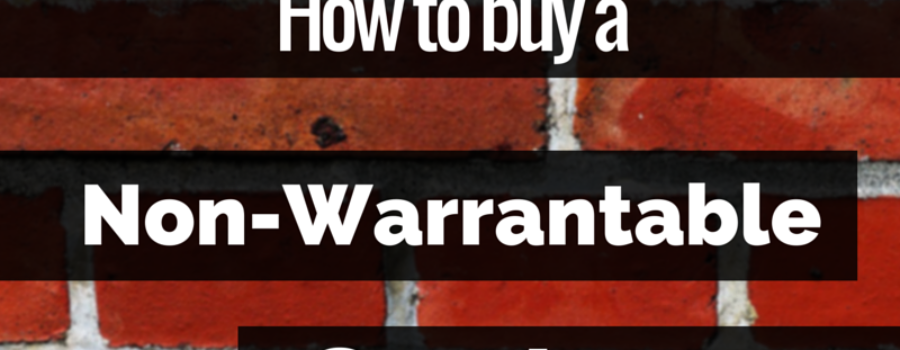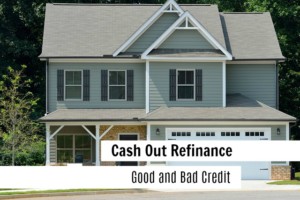Finding out that the condo you’re looking to buy is considered to be a non-warrantable condo can be heartbreaking.
When a condo is identified as a non-warrantable that means it does not meet conventional guidelines (meaning Fannie Mae and Freddie Mac won’t buy the loan).
This is kind of a big deal because Fannie Mae and Freddie Mac pretty much buy all conventional loans. If they won’t give the thumbs up on the condo, you and the seller are in a bit of a tough position.
The first thought that comes to mind for most people is “okay, well what about FHA, VA, or Rural Development? Why don’t we just do a government loan?”
Great question.
For the condo to be eligible for FHA financing, it has to be on the FHA approved condo list. If it’s not already on the list, it’s probably best you move onto something else because getting a condo on the FHA approved condo list isn’t exactly a walk in the park.
Same thing goes for getting a condo with a VA loan.
The department of Veteran Affairs actually has their own list of approved condos. Again, not the easiest thing in the world to get on that list.
For a Rural Development loan, the condo just needs to meet the conventional condo guidelines to be eligible for financing. There is no USDA Rural Development condo approved list.
Chances are, if the condo doesn’t meet conventional guidelines, it probably doesn’t meet government guidelines either.
What makes a condo non-warrantable?
Some companies will have their own overlays as to what is considered acceptable, but we’ll look at some of the most common reasons for a condo to get flagged as non-warrantable:
- Projects where a single entity owns more than 10% of the total units (for projects with 21 or more units).
- Project has inadequate insurance coverage.
- Condo project has similar characteristics and is managed as a hotel (condotel)
- Project (HOA, sponsor, developer) is in litigation that relates to safety, structural soundness, functional use or habitability of the project.
- New construction condos.
- Established condos that have additional phases in need of completion.
- High percentage of non-owner occupied units.
- High number of units being delinquent on association dues for more than 60 days.
- Project budget is not appropriately structured.
- And many more.
The most frustrating thing about buying a non-warrantable condo…
Many lenders wait until the last-minute before ordering a condo questionnaire (which tells them if the condo is warrantable or
Why?
Well, your guess is as good as mine. Maybe it’s their “policy” to get the condo questionnaire at the final stages of the loan approval process. Maybe the loan officer didn’t realize how detrimental a non-warrantable condo can be to the process.
It would seem that the most logical thing to do would be to get the condo questionnaire completed before even ordering the appraisal! Think about it, a condo questionnaire costs about $150 (sometimes free), and an appraisal costs $400 – $500. Wouldn’t it make sense to order the questionnaire first, to see if the home can even be financed to begin with?
But many times the opposite happens. Borrowers get under contract on a home, get appraisal done, get fully approved though underwriting, take selfie’s of themselves in front of their new home a week before closing, and then get a call an hour later from their loan officer who say’s “hey man, I just heard from Freddie Mac, they said your condo is non-warrantable”.
Really?
The loan officer is going to place the blame on Freddie Mac?
I know it seems insane. I agree. But there is hope…
How to buy a Non-Warrantable Condo
There are 3 ways to buy a condo that is not warrantable:
Buy the condo with cash.
Yeah, because so many people have hundreds of thousands of dollars lying around.
Buy the condo on land contract.
This is where the seller acts as the lender. This is a good option, but the problem is that there aren’t a ton of sellers willing to do this. Buying on land contract really limits you to what you can buy. Also, land contract holders usually want to be paid in full within 5 years.
Buy the condo with a portfolio loan.
You can find portfolio loans with small banks or credit unions. These are what some would call “common sense” loans. Portfolio loans provide the opportunity for borrowers (and condo projects) to get looked at from a common sense standpoint.
Often times portfolio loans are a breath of fresh air for folks who have been denied for traditional financing. It gives them an opportunity to own the home they want if the big picture makes sense.
Portfolio loans are not “no-documentation” loans.
All income has to be verified. All assets have to be verified. An appraisal has to be done. All components of the approval process have to be legitimate. The main difference between the portfolio loan approval process and the traditional loan approval process is the chance to get the whole story looked at.
Portfolio lenders do not take a check-in-the-box type of approach unlike the traditional lending process. They/we truly look at all of the circumstances when making a decision.
These loans are kept on the lender’s portfolio, and are not sold on the secondary market like most loans.
The pricing on portfolio loans vary based on risk. And every portfolio lender has their own take on what each type of risk costs.
You’ll typically find that rates on portfolio loans are reasonable when considering the alternative (renting).
If you have been told you’re stuck because of a non-warrantable condo…
I invite you to reach out to me.
You won’t be talking with some new loan officer, or a customer service rep, you’ll be connecting with me directly.
I have been able to get many borrowers approved when other lenders said it couldn’t be done.
If I am unable to assist, I should be able to point you in the right direction at the very least.
Adam Lesner | NMLS 198818 | Troy, Michigan
Michigan, Massachusetts, and Florida. Also offering financing in most states across the US including (but not limited to) Georgia, North Carolina, South Carolina, Alabama, Arizona, California, Colorado, Delaware, Washington DC, Illinois, Indiana, Iowa, Kentucky, Louisiana, Maryland, Minnesota, Missouri, Ohio, Oklahoma, Oregon, Tennessee, Virginia, Wisconsin.













What questions do you have?